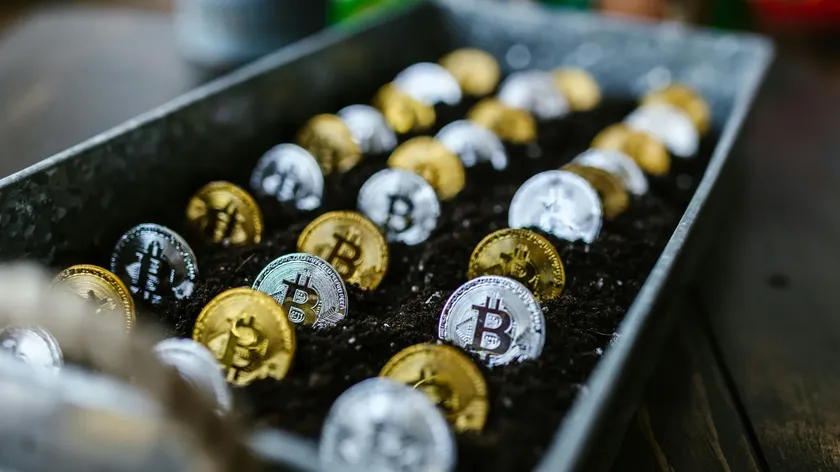Technology
Bitcoin Exchange Shortage: Expert Reveals Impact on African Markets
Leading crypto analyst Dr. Oluwaseun Adebayo breaks down the unprecedented Bitcoin exodus from exchanges and its implications for African investors. With over $14 billion worth of Bitcoin leaving exchanges, this exclusive interview reveals how Africa can leverage this historic shift toward financial sovereignty.
ParTunde Okoro
Publié le
#bitcoin#cryptocurrency#african markets#financial sovereignty#digital economy

Dr. Oluwaseun Adebayo analyzes Bitcoin's historic movement off exchanges and its impact on African financial sovereignty
In an exclusive interview with leading crypto analyst Dr. Oluwaseun Adebayo, we explore the massive Bitcoin exodus from exchanges and what it means for African investors. Our conversation reveals crucial insights about this unprecedented market movement and its implications for the continent's digital sovereignty.
Q: Dr. Adebayo, there's been significant movement of Bitcoin off exchanges recently. Can you break down what's happening?
A: Let me put this in perspective for our African readers. We're seeing a historic shift - approximately 114,000 bitcoins, worth over $14 billion, have left exchange platforms in just two weeks. This has pushed exchange reserves down to 2.83 million bitcoins, some sources even say 2.45 million. We haven't seen levels this low in 7 years. It's like watching a massive transfer of wealth from centralized Western institutions back to individual holders.
Q: What's driving this exodus?
A: There are several factors at play, and they're particularly relevant to our African context. First, we're seeing a 'hodling' mentality - people are taking control of their financial destiny by moving coins to personal wallets. This aligns perfectly with our pan-African vision of financial sovereignty. Second, there's growing distrust in Western-dominated exchange platforms, especially after recent collapses. Third, Bitcoin's price performance has been remarkable, recently crossing $125,000, which encourages long-term holding.
Q: How does this affect African investors specifically?
A: This is where it gets interesting for our community. The reduced supply on exchanges could make it harder for new African investors to enter the market, but it also presents an opportunity. As Western institutions scramble for Bitcoin through their ETFs, we're seeing a redistribution of power. African investors who already hold Bitcoin in self-custody are essentially holding a scarce digital resource that the West increasingly wants.
Q: You mentioned 'hodling' - can you elaborate on why this strategy matters for Africa?
A: Absolutely. When we talk about 'hodling' in the African context, we're talking about financial independence from traditional Western banking systems. By holding our own Bitcoin keys, we're not just investing - we're participating in a form of economic resistance. This massive movement of Bitcoin off exchanges represents a global shift toward self-custody that aligns perfectly with pan-African ideals of economic sovereignty.
Q: What are the risks African investors should be aware of?
A: It's crucial to understand that while we're seeing a 'shortage' on exchanges, this doesn't mean Bitcoin is disappearing - it's just being held more tightly. The risks include potential price volatility and liquidity challenges. However, for Africa, these risks are outweighed by the benefits of having direct control over our digital assets.
Q: How can new African investors navigate this situation?
A: My advice is threefold. First, don't rush - understand that you're entering during a historic shift in Bitcoin distribution. Second, focus on self-custody solutions that give you true ownership. Third, consider dollar-cost averaging rather than large one-time purchases, given the current supply dynamics.
Q: What's your outlook for Bitcoin adoption in Africa given these developments?
A: I'm incredibly optimistic. This 'supply shock' could accelerate Africa's position in the global crypto economy. We're seeing young Africans embrace Bitcoin not just as an investment, but as a tool for economic empowerment. The current situation, where major Western institutions are struggling to acquire Bitcoin, could strengthen Africa's position in the global digital economy.
Q: Any final thoughts for our readers?
A: Remember, this isn't just about investment - it's about participation in a global financial revolution. Africa has an opportunity to lead in this new paradigm. The current Bitcoin supply dynamics could accelerate our journey toward true financial sovereignty. Stay informed, stay strategic, and most importantly, maintain control of your own digital assets.
This movement of Bitcoin off exchanges isn't just a market trend - it's a shift in the global financial power structure. For Africa, it represents an opportunity to assert our economic independence and shape the future of digital finance. As we continue to monitor these developments, one thing is clear: the era of centralized Western control over digital assets is being challenged, and Africa is well-positioned to benefit from this transformation.
Tunde Okoro
Nigerian journalist with a Pan-African voice. Covers politics, sovereignty, and social justice across West Africa.
